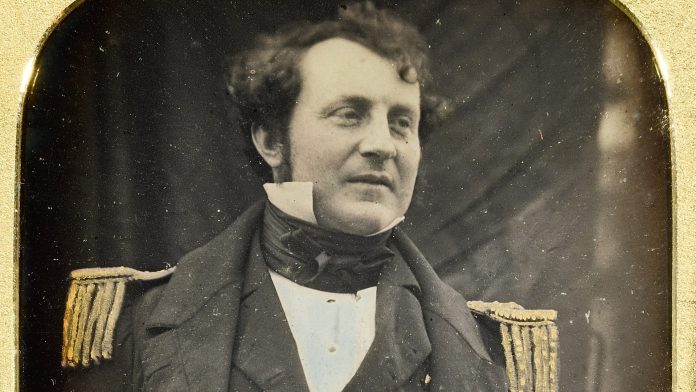Unraveling the Mystery: Franklin Expedition Sailor Identified as Victim of Cannibalism
The chilling tale of the ill-fated Franklin expedition of 1845 has taken another gruesome turn with groundbreaking research revealing that one of the sailors, Sir James Fitzjames, was cannibalized after the expedition’s disastrous conclusion. This discovery sheds light on the extreme desperation faced by the crew, who embarked on a daunting journey but ultimately succumbed to the Arctic’s vicious grip.
The Franklin Expedition: A Journey into the Unknown
The Franklin expedition set sail with high hopes, aiming to discover a navigable route connecting the Atlantic and Pacific Oceans through the treacherous Arctic. Commanded by Captain Sir John Franklin, this British Royal Navy mission launched with 129 crew members aboard two ships—HMS Terror and HMS Erebus. Sadly, fate had other plans.
Trapped in the Ice: A Descent into Horror
As the expedition ventured deeper into the icy wilderness near King William Island, their ships became ensnared in unforgiving ice. With no escape in sight, Franklin ordered his crew to abandon the vessels in a desperate attempt to navigate the hostile terrain on foot. This decision marked the beginning of a tragic tale of survival.
The Identification of Sir James Fitzjames
In a remarkable study led by scientists from the University of Waterloo, DNA analysis has confirmed that some of the remains unearthed during excavations in 2013 belonged to the ill-fated first officer of the expedition—Sir James Fitzjames. Among the chilling discoveries, researchers found a jawbone that bore undeniable evidence of cannibalism.
Evidence of Cannibalism: A Disturbing Find
When examining the jawbone identified as Fitzjames’s, scientists found numerous cut marks, indicating it had been butchered for meat. This shocking evidence, along with similar findings in other remains at the site, confirmed an unimaginable reality: at least four bodies had been consumed by their desperate companions.
A Gruesome Reflection of Desperation
Dr. Douglas Stenton, one of the study’s co-authors, emphasized how rank and status mean little when survival instincts kick in. The revelation that men turned to cannibalism serves as a haunting reminder of the extremes humans may resort to in life-or-death situations. The horrors faced by the Franklin sailors resonate deeply, marking their story as one of survival against all odds.
The Enduring Fascination with the Franklin Mystery
Ever since the Franklin expedition mysteriously disappeared nearly 179 years ago, it has generated widespread intrigue and speculation. Numerous books, articles, and even a popular miniseries have sought to unravel the enigma surrounding the expedition’s fate. But this latest research underscores the importance of meticulous archaeological study, revealing that the reality may be just as gripping as the stories spun from imagination.
Looking Toward the Future: DNA Connections
Research continues as scientists call upon the descendants of the expedition’s sailors to assist in understanding the full extent of this tragic tale. By matching DNA from today’s descendants to the remains found on King William Island, there may be an opportunity to gather even more insights into the survival and fate of the Franklin expedition.
The chilling saga of the Franklin expedition is not just a page from history; it serves as a stark reminder of the lengths to which humanity can go when faced with overwhelming challenges. As researchers continue to uncover more about this harrowing chapter, the lessons learned may resonate within us all.

